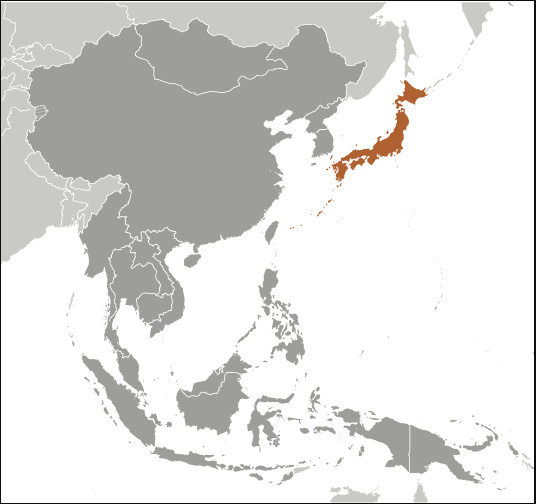I recently came across an interesting article about a Japanese court decision upholding the validity of a Japanese statute banning dual citizenship. The Asahi Shimbun published a report on January 22, 2021, on the decision of the Tokyo District Court the day before. Eight plaintiffs who lived in Europe, some for work and some to be with family, argued that the provision of Japan’s Nationality Law generally prohibiting dual citizenship was in conflict with the Japanese Constitution. The Court, as we will see, disagreed.

I have written several articles about U.S. immigration law here at The New Leaf Journal. While I work in U.S. immigration law, I am far less familiar with Japanese immigration and nationality law – although I was previously aware of Japan’s dual citizenship rules. The case and issues piqued my interest, so I decided to share a brief overview here at The New Leaf Journal.
In full disclosure, my discussion of the case is based solely on The Asahi Shimbun article and a few other articles that came from quick research. I have not read the original decision (nor could I, for I cannot read Japanese) or underlying court documents.
Legal Issues – As Described in News Reports
Japan’s Nationality Law generally prohibits Japanese citizens from maintaining Japanese citizenship while also holding foreign citizenship. An earlier report on the case from The Mainichi noted that Japanese citizens under the age of 20 may maintain dual citizenship, but they are required to renounce either their Japanese or foreign citizenship between the ages of 20 and 22. Wikipedia’s article on Japanese citizenship and nationality lists limited exceptions for individuals who had dual citizenship prior to January 1, 1985, and for North Koreans.
The plaintiffs in the instant matter challenged the provision of Japan’s Nationality Law that causes a Japanese citizen to lose his or her Japanese citizenship upon acquiring foreign citizenship of his or her own free will. The Asahi Shimbun explained that the plaintiffs argued that this law violates the Japanese Constitution in two respects. First, the plaintiffs argued that Japan’s Nationality Law conflicted with a Constitutional provision that guarantees the right to expatriation. Second, the plaintiffs argued that the statutory provision against Japanese dual citizenship violated their Constitutional right to the pursuit of happiness. The article suggests that the plaintiffs made policy-related arguments as well, asserting that Japan’s ban on dual citizenship is an outdated carryover from Imperial Japan that does not make sense in today’s world.

The Japanese Government defended the statutory provision, arguing that it was not in conflict with the Japanese Constitution. Furthermore, according to The Asahi Shimbun, the Government argued that the law served the practical purposes of avoiding confusion in issues involving diplomacy, custody, and taxation.
Tokyo District Court Ruling Upholds Japan’s Dual Citizenship Law
The Tokyo District Court agreed with the Government, and it dismissed the plaintiffs’ challenge to the Nationality Law. Regarding the plaintiffs’ main Constitutional claim that Japan’s prohibition on dual citizenship ran afoul of the Constitution’s guarantee to the right of expatriation, the Court ruled that the Constitution’s affirming the right to expatriation does not guarantee a concomitant right to retain Japanese citizenship after willfully acquiring foreign citizenship. The article suggests as well that the Court concluded that the Government’s practical arguments in favor of the purpose of the law prohibiting dual citizenship were “reasonable.”
The plaintiffs plan to appeal, so it appears that the instant decision will not be the end of the matter.
Japan’s Citizenship Laws Are Unusual
The Asahi Shimbun article notes that close to 70 percent of countries allow some form of dual citizenship. As of May 23, 2019, 51 countries had a general prohibition on dual citizenship. This list includes three of the four largest countries in the world by population (China, India, and Indonesia). Japan does stand out a bit from most of the other countries on the list. China, India, Japan, Saudi Arabia, Thailand are the only countries in the world’s top 25 (by GDP) that do not allow for dual citizenship. Some degree of allowance for dual citizenship exists almost without exception in the West although it is readily available in some countries (e.g., the United States) while heavily circumscribed in others.
Practical Effect of Japan’s Dual Citizenship Prohibition
The Asahi Shimbun reported that as of 2019, 1.41 million Japanese citizens stayed abroad for more than three months. Japan’s population was 126.17 million as of October 1, 2019. Thus, approximately 0.01% of Japanese citizens were abroad for more than three months in 2019.
Those statistics do not indicate how many of those Japanese nationals who spent significant time abroad in 2019 had either a path or inclination toward obtaining foreign citizenship. While some, like the plaintiffs, may have had acquired as a result of employment or family ties, most were likely foreign students or foreign workers with no intention of remaining abroad permanently. However, the existence of Japan’s Nationality Law in conjunction with its norms regarding dual citizenship likely takes the option out of the realm of things that many Japanese citizens would consider.
There are other classes of individuals who may be affected by Japan’s prohibition on dual nationality that were not touched upon by the article. For example, foreign spouses who marry Japanese citizens and reside permanently in Japan must decide whether to pursue Japanese citizenship or live in Japan as a non-citizen permanent resident. I also referenced the case of children who have Japanese citizenship and nationality along with a foreign citizenship and nationality, and who must decide which one to keep after turning 20.
My Take
I am reluctant to say much about the Tokyo District Court’s reasoning, for I am not familiar with Japanese law, nor have I read the decision. As described by Asahi Shimbun, the Court’s ruling sounds reasonable. If there is nothing more to it than what the article described, extrapolating a right to dual citizenship from the guarantee to the right to expatriate does sound like a bit of a stretch. Had I more time to consider Japanese constitutional law, I would be interested in studying the meaning of Japan’s naturalization provisions at the time the Constitution was codified in 1950. Regarding the Naturalization Law, there are surely interesting issues to explore in how it derived from Japan’s similar Imperial prohibitions on dual citizenship.
Outmoded or not, Japan’s citizens, through their elected representatives, instituted a general prohibition on dual citizenship as an exercise of state sovereignty. The Government’s view, contrary to that of the plaintiffs in the ongoing case on the Nationality Law, is that the benefits of ensuring that Japanese citizens owe exclusive allegiance to Japan outweighs whatever downsides may exist of prohibiting dual citizenship in the country with the world’s third largest economy, as measured by GDP. Provided that the plaintiffs do not prevail on appeal, any changes to Japan’s Nationality Law will have to made by the representatives of the citizens of Japan.